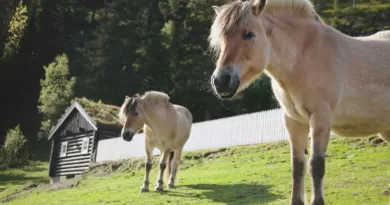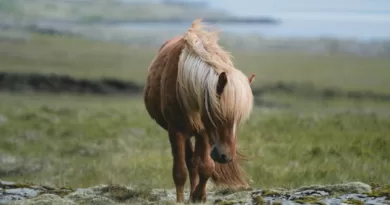Can Horses Eat Pumpkin
Pumpkin as a Nutritional Supplement for Horses
Pumpkin has become increasingly popular as a nutritional supplement for horses due to its many health benefits. One of the main benefits of feeding pumpkin to horses is its high content of vitamins and minerals. Pumpkin is rich in vitamin A, which is essential for maintaining healthy skin, coat, and eyesight in horses. It also contains vitamin C, which plays a crucial role in boosting the immune system and promoting overall health. In addition, pumpkin is a good source of potassium, magnesium, and iron, which are important for maintaining proper muscle function and blood cell production in horses.
Another key nutritional component of pumpkin for horses is its fiber content. Pumpkin is high in dietary fiber, which aids in the digestion and absorption of nutrients. Fiber helps regulate the horse’s digestive system, preventing issues such as colic and constipation. Additionally, the high fiber content in pumpkin can help horses with weight management and prevent them from overeating. Overall, pumpkin provides horses with a natural and nutritious supplement that can contribute to their overall health and well-being.
Understanding the Digestive System of Horses
Horses have a unique and intricate digestive system that allows them to efficiently process their diets. Unlike humans, horses are considered hindgut fermenters, meaning the majority of their digestion takes place in the large intestine rather than the stomach. This specialized digestive system enables horses to break down fibrous plant material, such as hay and grass, in order to extract the nutrients they need for optimal health.
When a horse ingests food, it first passes through the esophagus and into the stomach, which has a relatively small capacity compared to the rest of the digestive system. Once in the stomach, the food is mixed with stomach acid and enzymes to begin the initial breakdown process. From the stomach, the food then moves into the small intestine, where further digestion and nutrient absorption occurs. However, the majority of digestion in horses happens in the hindgut, specifically the cecum and colon. In these sections, specialized microorganisms break down the fibrous plant material through a process called fermentation, producing volatile fatty acids as a byproduct. These fatty acids are then absorbed by the horse’s body and used as a source of energy.
The Benefits of Adding Pumpkin to a Horse’s Diet
Adding pumpkin to a horse’s diet can provide several benefits to their overall health and well-being. First and foremost, pumpkin is rich in essential nutrients such as vitamins A, C, and E, as well as minerals like potassium and magnesium. These nutrients can support a horse’s immune system, promote healthy skin and coat, and aid in proper muscle function. Additionally, pumpkin is a great source of dietary fiber, which is essential for maintaining a healthy digestive system. Fiber can help regulate bowel movements, prevent colic, and improve nutrient absorption in horses. Moreover, pumpkin is known for its anti-inflammatory properties, making it an ideal addition to a horse’s diet to reduce inflammation and promote joint health. Overall, incorporating pumpkin into a horse’s diet can provide a myriad of benefits for their overall health and well-being.
Potential Risks and Side Effects of Feeding Pumpkin to Horses
Feeding pumpkin to horses is generally considered safe and beneficial for their overall health. However, as with any dietary supplement, there are potential risks and side effects to be aware of. One potential risk is overfeeding pumpkin, which can lead to digestive upset and loose stools. Horses that consume excessive amounts of pumpkin may experience diarrhea or have difficulty maintaining their body weight.
In addition, it is important to be cautious when introducing pumpkin to horses with underlying health conditions, such as insulin resistance or metabolic disorders. These horses may have specific dietary requirements, and the high natural sugar content in pumpkin could potentially exacerbate their conditions. It is recommended to consult with a veterinarian or equine nutritionist before making any significant changes to a horse’s diet, including the addition of pumpkin.
Overall, while pumpkin can be a valuable nutritional supplement for horses, it is important to monitor their intake and adjust accordingly based on their individual needs and health status. By doing so, horse owners can ensure the potential benefits of adding pumpkin to their horse’s diet while minimizing any potential risks or side effects.
• Overfeeding pumpkin can lead to digestive upset and loose stools
• Excessive amounts of pumpkin may cause diarrhea or difficulty maintaining body weight
• Horses with underlying health conditions like insulin resistance or metabolic disorders should be cautious when introducing pumpkin due to its high natural sugar content
• Consult with a veterinarian or equine nutritionist before making any significant changes to a horse’s diet, including adding pumpkin
• Monitor the horse’s intake and adjust accordingly based on their individual needs and health status
Recommended Quantities of Pumpkin for Horses
When it comes to feeding pumpkin to horses, it is important to remember that moderation is key. While pumpkin can offer numerous benefits to a horse’s diet, it is crucial to feed it in appropriate quantities. The recommended amount of pumpkin for horses is typically 1 to 2 pounds per day. However, this can vary depending on the size, age, and individual needs of the horse. It is advisable to start with smaller amounts and gradually increase the quantity to gauge the horse’s response and tolerance. Overfeeding pumpkin can lead to digestive upset and may disrupt the horse’s nutrient balance, so it is essential to monitor their intake and consult with a veterinarian if needed.
In addition to controlling the quantity of pumpkin, it is equally important to consider the overall equine diet. Horses are herbivorous animals and typically thrive on a forage-based diet. Pumpkin should not be considered a substitute for essential nutrients provided by hay, pasture, and balanced concentrates. Instead, it should be seen as a supplement that can enhance the nutritional value of their diet. Incorporating pumpkin into a horse’s feeding routine can provide added fiber and beneficial nutrients, but it should always be balanced with other suitable sources of nutrition to ensure overall equine health and well-being.
Preparing Pumpkin for Horses: Cooking or Raw?
When it comes to preparing pumpkin for horses, one common question that arises is whether it should be cooked or fed to them raw. Both options have their own benefits and considerations.
Cooking the pumpkin can soften its flesh, making it easier for horses to chew and digest. Steaming or boiling the pumpkin can also help break down its cellular walls, unlocking more nutrients that are beneficial for the horse’s overall health. Additionally, cooking can help to eliminate bacteria or parasites that may be present on the outer skin of the pumpkin.
On the other hand, feeding raw pumpkin to horses can provide them with a crunchy and fibrous treat that can help keep their teeth clean and promote healthy chewing. Some horse owners believe that feeding raw pumpkin can preserve more of its natural enzymes and nutrients. However, it is important to note that certain horses may struggle to break down and digest large chunks of raw pumpkin, so it may be necessary to slice or chop it into smaller, more manageable pieces. Ultimately, the choice of cooking or feeding raw pumpkin to horses depends on the individual horse’s preference and digestive abilities. It is advisable to consult with a veterinarian or equine nutritionist to ensure that the chosen method aligns with the specific needs of the horse.
Incorporating Pumpkin into Horse Treats and Meals
Pumpkin can be a versatile and nutritious addition to a horse’s diet, and incorporating it into their treats and meals is a great way to provide them with extra nutrients. One simple way to include pumpkin is by mixing it into their regular grain or pellet feeds. Start by adding a small amount of cooked, mashed pumpkin to their feed and gradually increase the quantity over time. This can help to introduce the taste and texture of pumpkin to the horse and ensure they accept it without any issues. Additionally, pumpkin can be used to make homemade horse treats by combining it with other ingredients such as oats, molasses, and carrots. These treats can be baked or dehydrated to create a tasty and nutritious snack for your equine companion.
When incorporating pumpkin into a horse’s meals, it is important to consider their individual dietary needs and any potential allergies. Always consult with a veterinarian or equine nutritionist to ensure that pumpkin is suitable for your horse and to determine the correct quantity to include in their diet. While pumpkin is generally safe for horses, feeding excessive amounts can lead to digestive upset. It is advisable to introduce pumpkin gradually and monitor their response. By incorporating pumpkin into their treats and meals thoughtfully, horse owners can provide their equine friends with a tasty and wholesome addition to their diet.
Pumpkin Seeds for Horses: Are They Safe?
Pumpkin seeds are often a popular addition to human diets, known for their nutritional value and potential health benefits. However, when it comes to feeding pumpkin seeds to horses, there is some debate and caution. While pumpkin seeds themselves are not toxic to horses, they do contain a high amount of oil and fat. This can lead to weight gain and digestive issues in some horses, especially those prone to obesity or with sensitive digestive systems.
The high oil content in pumpkin seeds can be problematic for horses, as it may increase the risk of developing conditions such as laminitis or metabolic disorders. Additionally, due to their small size and hardness, pumpkin seeds can pose a choking hazard for horses if not properly chewed or ground. It is also important to note that excessive feeding of pumpkin seeds may lead to an imbalance in the horse’s overall diet, as they are not a primary source of nutrition. Therefore, if you choose to incorporate pumpkin seeds into your horse’s diet, it is advised to do so sparingly and under the guidance of a veterinarian or equine nutritionist.
Pumpkin as a Source of Fiber for Horses
Pumpkin is a versatile and nutritious addition to a horse’s diet, and one of its health benefits lies in its high fiber content. Fiber is an essential component for a horse’s digestive system as it aids in maintaining a healthy gut function. The fiber in pumpkin can promote regular bowel movements and can help prevent digestive issues such as colic and impactions in horses.
Including pumpkin in a horse’s diet can provide them with a good source of soluble and insoluble fiber. Soluble fiber helps to regulate blood sugar levels and can contribute to a feeling of fullness, while insoluble fiber adds bulk to the manure, ensuring proper elimination. By incorporating pumpkin into a horse’s diet, owners can help support their digestive health and provide a natural source of fiber that can benefit their overall well-being.
Pumpkin Recipes and Ideas for Horse Owners
Pumpkin is a versatile ingredient that can be incorporated into a horse’s diet in a variety of ways. One simple recipe idea is to mix cooked pumpkin puree with oats and a small amount of molasses to create a nutritious and tasty treat for your equine companion. This can be served as a standalone snack or used as a topping for their regular feed.
If you’re feeling more adventurous, you can experiment with creating homemade pumpkin horse treats. Combine pumpkin puree with whole wheat flour and a touch of cinnamon for a delicious and wholesome treat. You can shape the mixture into small balls or use cookie cutters to create fun shapes that your horse will enjoy. These treats can be baked or dehydrated for a longer shelf life. Remember to always introduce new treats gradually and monitor your horse’s response to ensure they are enjoying the pumpkin goodness.
Can horses eat pumpkin?
Yes, horses can eat pumpkin.
Is pumpkin safe for horses?
Yes, pumpkin is safe for horses to consume in moderation.
Why would I feed pumpkin to my horse?
Pumpkin can serve as a nutritional supplement for horses and provide various health benefits.
How much pumpkin should I feed my horse?
The recommended quantity of pumpkin to feed a horse depends on its size and dietary needs. It is important to consult with a veterinarian for specific guidelines.
Should I cook the pumpkin before feeding it to my horse?
It is safe to feed both cooked and raw pumpkin to horses.
How can I incorporate pumpkin into my horse’s treats and meals?
Pumpkin can be added to horse treats or mixed into their regular meals. There are various recipes available for horse owners to try.
Are pumpkin seeds safe for horses?
Pumpkin seeds are generally safe for horses to consume, but it is important to remove any sharp or hard shells before feeding them.
Can pumpkin be used as a source of fiber for horses?
Yes, pumpkin is a good source of dietary fiber, which can benefit a horse’s digestive system.
What are the potential risks or side effects of feeding pumpkin to horses?
While pumpkin is generally safe, overfeeding can lead to digestive upset. It is always best to introduce new foods gradually and monitor your horse’s response.
How should I prepare pumpkin for my horse’s consumption?
Pumpkin can be cooked, mashed, or pureed before feeding it to your horse. Removing the seeds and rind is recommended.




